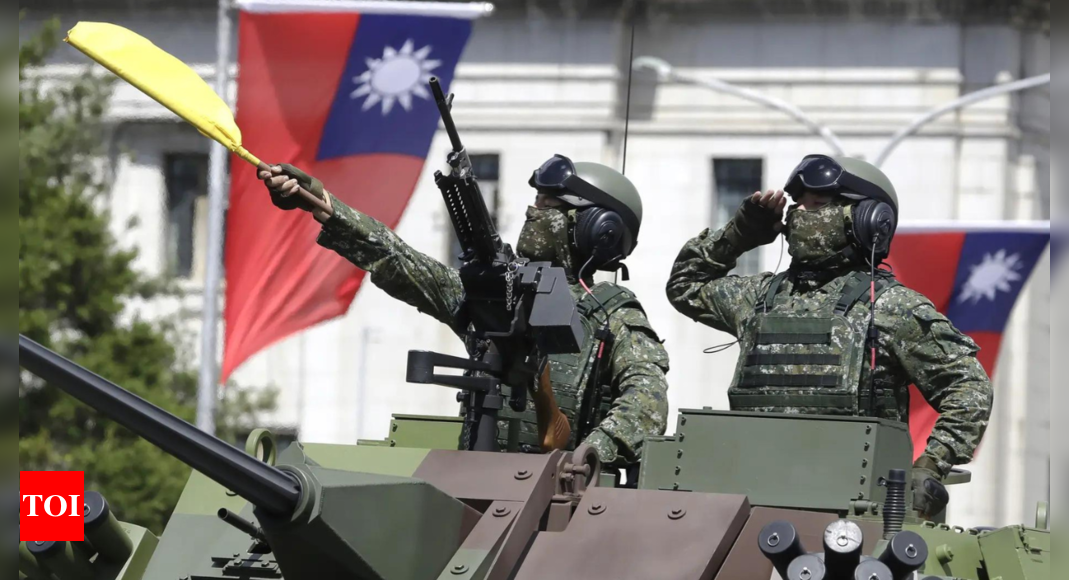U.S. Arms Deal with Taiwan Sparks Chinese Outrage

WASHINGTON, D.C.: The United States has approved a $2 billion arms package for Taiwan, marking a significant step in defense support to the self-governed island. This decision has quickly drawn condemnation from Beijing, which regards Taiwan as part of its territory and opposes foreign arms sales to the island.
Key Details of the Arms Package
The new arms deal includes advanced defense systems aimed at strengthening Taiwan’s security against potential threats:
- National Advanced Surface-to-Air Missile Systems (NASAMS): The package includes three NASAMS units, valued at approximately $1.16 billion. These systems, previously used in Ukraine, are expected to enhance Taiwan’s air defense.
- Advanced Radar Systems: With an estimated value of $828 million, these radar systems will further bolster Taiwan’s defense capabilities.
Taiwan’s Response and Enhanced Defense Preparations
Taiwan’s presidential office expressed gratitude to Washington for its continued support, emphasizing the importance of these defense upgrades under the leadership of recently elected President Lai Ching-te. Since taking office in May, President Lai has prioritized defense preparedness amidst increased military pressure from China.
- Presidential Statement: “Strengthening Taiwan’s self-defense capabilities is the foundation for maintaining regional stability,” said Karen Kuo, spokesperson for Taiwan’s presidential office.
Rising Tensions: China’s Military Drills
China’s response to the arms deal comes amid heightened regional tensions. Just last week, Beijing conducted a second round of military exercises around Taiwan, simulating a blockade of key ports. Taiwan’s defense ministry reported unprecedented activity, with 153 Chinese aircraft, 14 naval vessels, and 12 government ships maneuvering near the island in a single day.
Beijing’s Condemnation of U.S. Arms Deal
China has openly criticized the U.S. arms sale to Taiwan, claiming it violates China’s sovereignty and damages diplomatic relations between Beijing and Washington. Beijing’s rebuke underscores the escalating friction between the two global powers over Taiwan.





